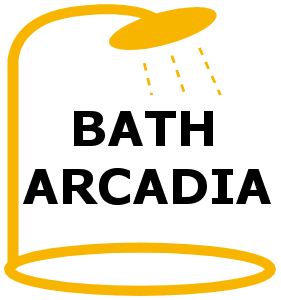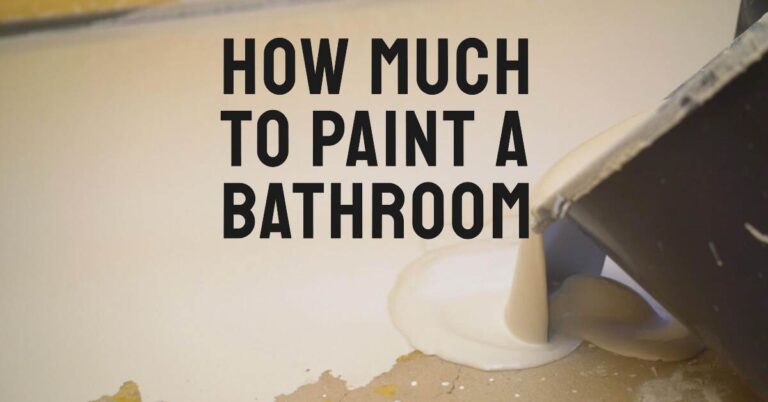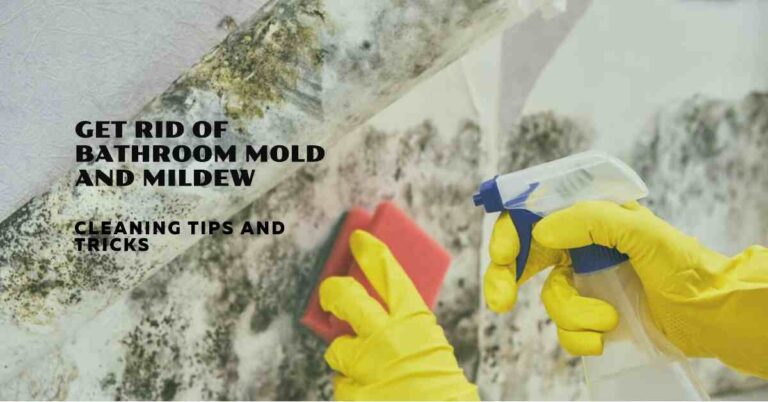Do you dread opening your shower curtain every morning only to find a disgusting layer of mold and mildew on it? If so, you’re not alone. Mold and mildew are common problems that plague many bathrooms, especially in humid climates or poorly ventilated spaces. They can cause allergies, asthma, infections, and damage to your bathroom fixtures and walls.
But don’t worry; there is a solution. This article will teach you how to prevent mold and mildew on your shower curtain using simple and effective methods. You will also learn how to clean your shower curtain if it already has mold and mildew and maintains it in good condition.
Following these tips, you can create a healthy and hygienic bathroom environment while managing various shower curtains, including fabric, plastic, or vinyl. Also, save money and time by avoiding the need to replace your shower curtain frequently. A clean shower curtain can make your bathroom look more attractive and inviting.
- Prepping and Ensuring Safety to Prevent Shower Curtain Mold and Mildew
- Step-by-step Method Removing Mold and Mildew on Your Shower Curtain
- How to Clean a Plastic or Vinyl Shower Curtain Using the Bathtub Method
- Routine Maintenance Tips to Prevent Mold and Mildew on Shower Curtain
- Key Takeaways
- FAQs
- Conclusion
- Resources:
Prepping and Ensuring Safety to Prevent Shower Curtain Mold and Mildew
Before cleaning your shower curtain, you must prepare some materials and tools. You will need the following:
- A cleaning solution of equal parts white vinegar and water in a spray bottle.
- A washing machine with detergent and white vinegar.
- A bathtub with water and salt.
- A microfiber cloth or a gentle brush.
- A dryer or a clothesline.
It is also important to adhere to safety precautions while handling cleaning agents. You should:
- Wear gloves and eye protection when using bleach or other harsh chemicals.
- Avoid mixing bleach with vinegar or ammonia, which can produce toxic fumes.
- Ventilate your bathroom well when using cleaning agents.
- Test a small area of your shower curtain before applying any cleaning solution to avoid discoloration or damage.
Step-by-step Method Removing Mold and Mildew on Your Shower Curtain
Depending on your shower curtain type, you can choose different cleaning methods. Here are some of the most effective ways to remove mold and mildew from your shower curtain.
How to Clean a Fabric Shower Curtain Using the Washing Machine Method
If you have a fabric shower curtain, you can easily wash it in your washing machine. Here’s how:
- Remove the shower curtain from the rod and place it in the washing machine with old towels. The towels will help scrub off any dirt or stains from the curtain.
- Add half the recommended amount of detergent and one cup of white vinegar. The vinegar will help kill mold or mildew spores and remove any odors from the curtain.
- Wash on a normal cycle with warm water. Warm water will help dissolve any soap scum or residue from the curtain.
- Dry the shower curtain in the dryer on low heat, or hang it outside to air dry. Do not use high heat or iron the curtain, which may damage the fabric or cause shrinkage.
How to Clean a Plastic or Vinyl Shower Curtain Using the Bathtub Method
If you have a plastic or vinyl shower curtain, you can soak it in your bathtub with salt water. Here’s how:
- Fill the bathtub with enough water to cover the shower curtain.
- Add one cup of salt and stir well. The salt will help prevent mold and mildew from growing on the shower curtain by creating a barrier on its surface.
- Soak the shower curtain in the saltwater solution for three hours.
- Do not rinse off the salt water, as it creates a barrier against mold and mildew.
- Hang up the shower curtain to dry before showering.
How to Clean a Shower Curtain Using the Vinegar Spray Method
Use a vinegar spray if you want a quick and easy way to clean your shower curtain. Here’s how:
- Remove the shower curtain from the rod and lay it flat on a clean surface.
- Spray both sides of the shower curtain with the vinegar and water solution. The vinegar will help disinfect and deodorize the shower curtain and remove mold or mildew stains.
- Scrub any moldy or stained areas with a microfiber cloth or a gentle brush. Be careful not to damage the shower curtain material with too much pressure or abrasive tools.
- Rinse off the vinegar solution with warm water.
- Hang up the shower curtain to dry before showering.
Routine Maintenance Tips to Prevent Mold and Mildew on Shower Curtain
To prevent mold and mildew from coming back, you need to keep your shower curtain dry and clean. Here are some tips on how to do that:
- Use a smooth shower curtain or liner that does not trap moisture in creases or patterns. Shower curtains with raised or etched patterns may allow moisture or water to collect in certain areas, whereas a smooth curtain will allow water to glide down the drain.
- Ventilate your bathroom well during and after your shower by opening a window or turning on a fan. This will help your bathroom dry at a faster rate and help eliminate moisture buildup.
- Open your shower curtain wide enough for air circulation after each use. This will allow any trapped moisture on the wet side of the shower curtain to escape and dry faster. Shake out the liner and separate folds in your shower curtain to release trapped moisture. Also, consider putting an empty laundry basket or a hook in the tub to hold the wet shower curtain away from the tub side.
- Dry your shower curtain with a towel or rag after each use. This will help prevent soap scum from forming on your shower curtain in addition to mildew.
- After each use, spray your shower curtain with white vinegar to prevent soap scum buildup. The vinegar will also help keep your shower curtain fresh and mold-free.
- Wash your shower curtain regularly, at least once a month, using one of the methods described above. This will help remove dirt, stains, or odors from your shower curtain and prevent mold and mildew growth.
Key Takeaways
Here are the main points you need to remember from this article:
- Mold and mildew on shower curtains can cause health problems and damage your bathroom.
- You can prevent mold and mildew by keeping your shower curtain dry and clean.
- You can clean your shower curtain using simple household items such as vinegar, salt, and baking soda.
- You can choose different methods depending on your shower curtain type.
- You should follow safety precautions when using cleaning agents and test a small area before applying any solution.
FAQs
You should clean your shower curtain at least once a month or more if you notice any signs of mold or mildew. You can use vinegar, salt, baking soda, or bleach to clean your shower curtain, depending on the type of material.
The best way to prevent mold and mildew is to keep your shower curtain dry and clean. You can do this by ventilating your bathroom well, opening your shower curtain wide after each use, drying your shower curtain with a towel or rag, spraying your shower curtain with vinegar, and washing your shower curtain regularly.
Mold and mildew can cause allergies, asthma, infections, and damage to your bathroom fixtures and walls. They can also produce unpleasant odors and stains on your shower curtain. You should eliminate mold and mildew soon to avoid these health problems.
Vinegar, salt, and baking soda are some of the best natural cleaners for your shower curtain. They are cheap, eco-friendly, and effective at killing mold and mildew spores, and removing soap scum and odors. You can use them alone or in combination to clean your shower curtain.
Different types of shower curtains may require different cleaning methods. For fabric shower curtains, you can wash them in your washing machine with detergent and vinegar. For plastic or vinyl shower curtains, you can soak them in your bathtub with salt water. You can also use a vinegar spray method to clean both types.
Conclusion
You can relish a sanitary and wholesome bathroom by adhering to these suggestions. Additionally, you’ll reduce expenses and time by reducing the need to replace your shower curtain frequently. A clean shower curtain can make your bathroom look more attractive and inviting.
Have you tried any of these methods before? What are your favorite natural cleaners for your bathroom? Share your thoughts and experiences in the comments below.


